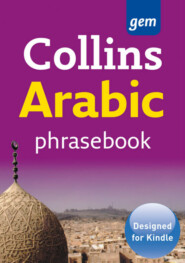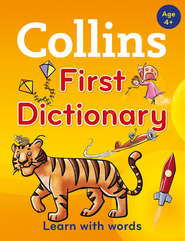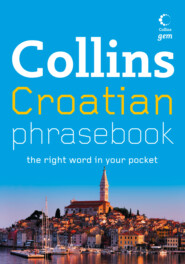По всем вопросам обращайтесь на: info@litportal.ru
(©) 2003-2025.
✖
Collins Primary Illustrated French Dictionary
Автор
Год написания книги
2019
Настройки чтения
Размер шрифта
Высота строк
Поля
It’s raining. Il pleut.
22 Is la pluie a noun or a verb?
23 Why is It rains a lot here. in part B?
Learn useful phrases
In the dictionary you’ll see phrases that are especially important in orange boxes. Try to learn these when you come across them, and you’ll soon know lots of useful things to say in French.
What time is it? Quelle heure est-il? It’s lunch time. C’est l’heure du déjeuner. How many times? Combien de fois?
Find out interesting things about life in France
There are also boxes which tell you about French customs, and about differences between life in France and Britain.
Did you know…?
In France, Easter eggs are said to be brought by the Easter bells orcloches de Pâqueswhich fly from Rome and drop them in people’s gardens.
Even more words
At school you will learn to talk about subjects such as the time and the weather, your family, your pets, and your clothes. The most important words for talking about these subjects are shown in the dictionary itself, and even more words are given in Language Plus, the supplement in the middle part of the dictionary. Have a look!
Answer key
1 demain and bonbon
2 the French side; French words on it; French-English written at the side of the page.
3 fire → fish
4 It’s the last word on page 411 (#litres_trial_promo).
5 first
6 Chantal, Hélène, Jean-Marie, Luc, Pierre, Sophie
7 Harry – because ‘a’ comes before ‘e’
8 Friday comes first and Wednesday comes last.
9 because the second letter of Thursday is ‘h’, which comes before ‘u’, the second letter of Tuesday
10 Friday, Monday, Thursday, Tuesday, Saturday, Sunday, Wednesday
11 June
12 correspondant
13 animaux
14 un ballon – the clue is in the example: un ballon de football
15 4 – car, tyre, dent, door
16 2 – brown, blue
17 bonbon – a sweet is a noun, it means candy; the example helps too
18 2 – quietly, happily; they both end in -ly
19 dur
20 2 – starts, finishes
21 because clean has an adjective meaning in this sentence; the example helps too
22 a noun
23 because it’s a verb
French – English (#ulink_e1f1eda4-c1f4-53cd-a506-e2f3572d1942)
A a
a VERB
seeavoir
Language tip
Don’t confuseawith the prepositionà.
1has
Elle a beaucoup d’amis.
She has lots of friends.
Language tip
Sometimesais used to show that something has happened in the past.
Il a joué au football. He played football.
2is
Il a neuf ans.











